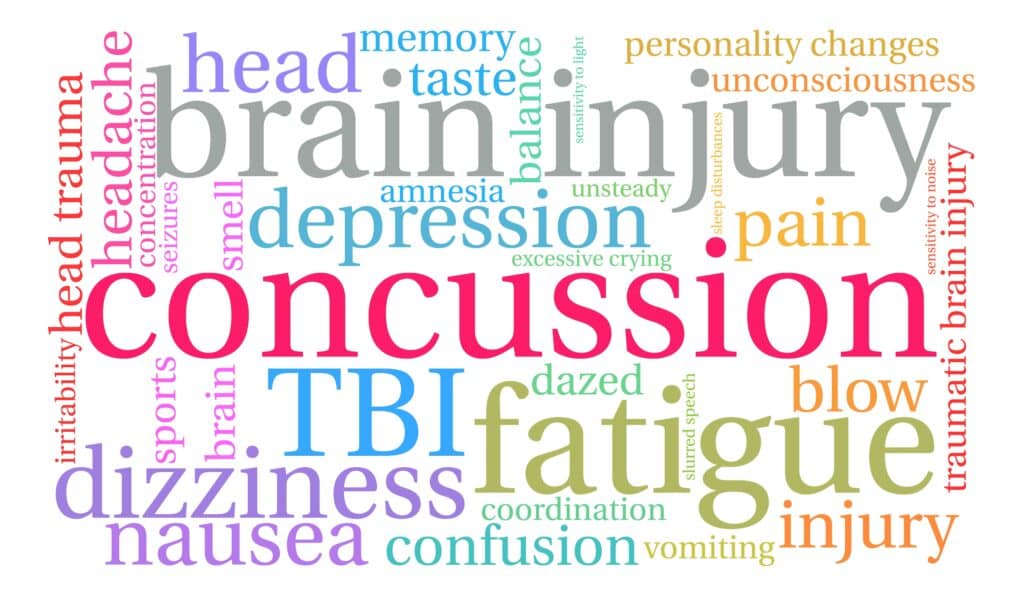A concussion occurs due to a forceful bump, blow, or jolt to the head, causing the brain to shift inside the skull. This movement can result in symptoms such as headache, confusion, nausea, dizziness, blurred vision, and sluggishness, and in some cases, a loss of consciousness. Collectively, these symptoms are known as Post-Concussion Syndrome. Symptoms typically appear within the first 7-10 days and resolve within weeks or months, but in some cases, they can persist for more than a year in some individuals.
In the U.S., nearly 4 million concussions occur annually. According to an NPR-Truven Health Analytics Poll, 1 in 4 Americans has experienced a concussion at some point in their lives, and more than a third have suffered 2 or 3 concussions.
Depending on the severity, a concussion can cause changes in brain chemistry, bruising, bleeding, and stretching or damage to brain cells. While symptoms may resolve, these changes can have long-term effects, potentially leading to serious health consequences years later.
Concussions and the Risk of Dementia
A lesser-known consequence of concussion is its association with an increased risk of Alzheimer’s disease and other forms of dementia, even decades after the initial injury. It may also accelerate the onset of cognitive decline in older individuals.
While the exact mechanisms linking head trauma to dementia are still not fully understood, there are several plausible explanations:
1. Brain Inflammation: Head trauma may trigger inflammation in the brain, which is a hallmark of Alzheimer’s disease.
2. Free Radical Production: Traumatic brain injury may lead to the production of free radicals, damaging neurons and contributing to neurodegenerative diseases.
3. Reduced Blood Flow: Brain injury may damage small blood vessels, reducing oxygen and nutrient delivery to brain cells.
4. Abnormal Protein Accumulation: Similar to Alzheimer’s, head injuries may lead to abnormal protein accumulation, such as tau, causing neuron death.
Athletes, Veterans, and Brain Trauma
Much of the research on brain injury and dementia risk has focused on athletes and combat veterans. Notable cases have helped raise public awareness about the risks associated with repeated head injuries.
• Jim McMahon, a former quarterback for the Chicago Bears, made headlines in 2012 when he announced his diagnosis of early-onset dementia at age 50, following four concussions during his football career.
• Mark Gastineau, a former New York Jets player, revealed that he had been diagnosed with both Alzheimer’s and Parkinson’s disease,attributing these conditions to his decade-long football career.
Research supports these personal stories. A study published in Neurology Reviews found that professional football players are four times more likely to develop Alzheimer’s disease compared to the general population. As a result, the NFL settled with over 5,000 former players (or their estates) for concussion-related illnesses they were suffering from or are expected to suffer from, including dementia.
Similarly, soccer players have become increasingly concerned about their long-term cognitive health. A study by the University of Glasgow’s Brain Injury Group revealed a five-fold increased risk of Alzheimer’s disease among former professional soccer players compared to the general
population. Interestingly, goalkeepers, who don’t head the ball as frequently, do not share this elevated risk.
For combat veterans, exposure to blast-related trauma—especially from IEDs and other explosives—leads to a unique pattern of brain injury. A study of 178,779 veterans from the Afghanistan and Iraq wars found that veterans with mild concussions (without loss of consciousness) had a 2.5 times higher risk of dementia. The risk increased to 2.8 times if there was a loss of consciousness and to 3.8 times for severe brain injuries with loss of consciousness.
Despite the heightened awareness of concussion-related risks in sports and military combat, falls remain the leading cause of traumatic brain injury (TBI), particularly in older adults.
Preventing Concussions and Falls
Given the long-term risks associated with head trauma, it’s crucial to take preventive measures. For those engaging in sports like skiing, cycling, or horseback riding, wearing proper protective headgear is wise. However, as seen in NFL studies, helmets may not always be enough to prevent brain injury in certain scenarios.
To reduce the risk of falls in the home, consider the following safety measures:
- Install grab bars around tubs, toilets, and inside showers.
- Secure rugs and carpets with non-slip pads or Velcro.
- Remove trip hazards like books, magazines, or other clutter from
floors. - Replace socks with slippers or shoes that have rubber soles for better
traction.
The Hidden Dangers of Concussion: Unreported Injuries
It’s estimated that 5 in 10 concussions go unreported or undetected, even though every case of head injury is potentially serious. Even in the absence of immediate symptoms, all head injuries should be evaluated by a medical professional. New therapies targeting specific concussion symptoms and neuroprotective medications may help minimize the risk of post-concussion syndrome and long-term cognitive decline.
As research continues to explore the connection between concussion and future dementia, it’s clear that preventing brain injuries should be a priority. Whether from sports, combat, or falls, head trauma can have lasting effects on brain health, including a potential link to Alzheimer’s and other dementias. Staying informed, wearing protective gear, and taking steps to reduce fall risks are key strategies for safeguarding our cognitive health.
The Disturbing Truth about Cow’s Milk and Your Health.






